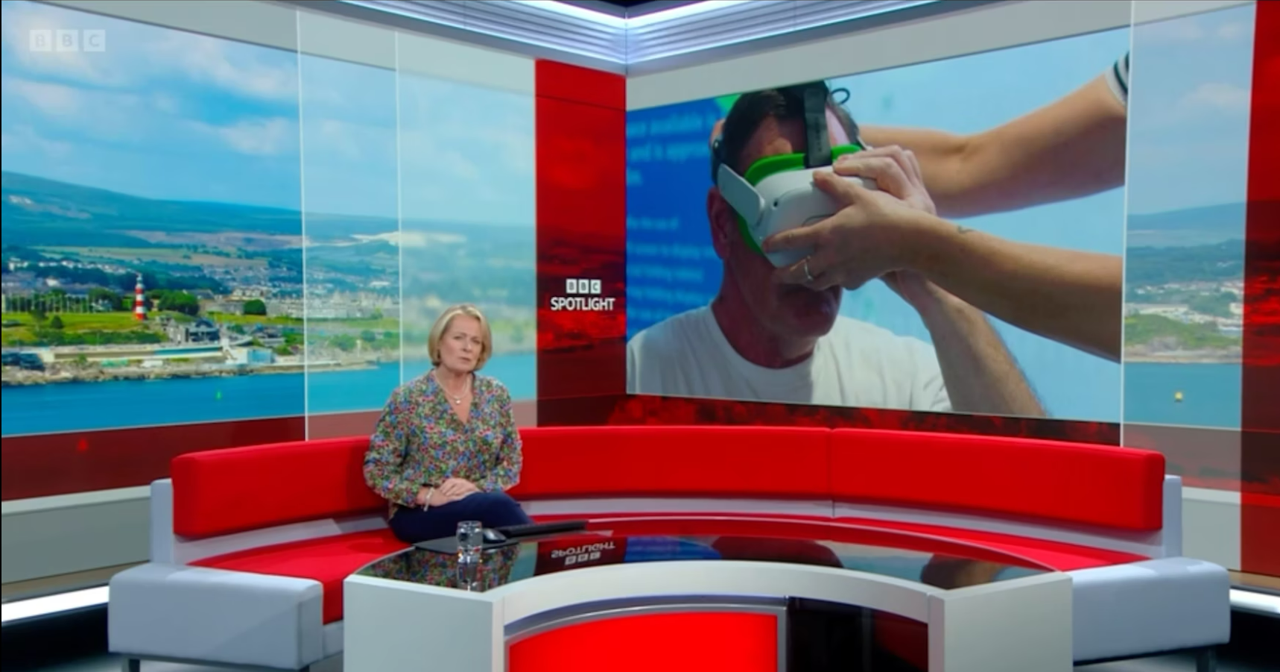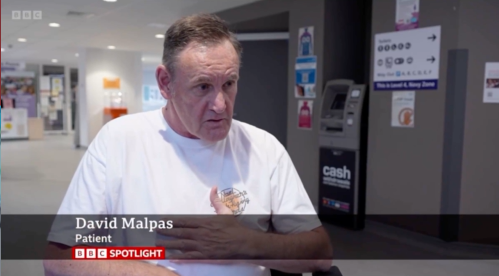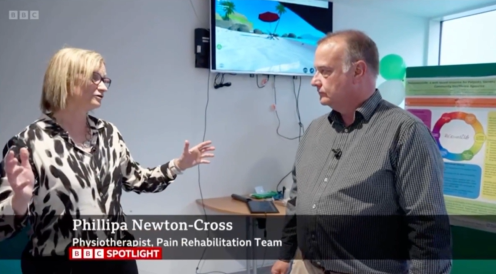Chronic pain affects millions of people and often forces them to rely on medication for many years. Torbay Hospital in Devon, UK, is now taking an innovative approach that is changing the way chronic pain is treated. Through Virtual Reality (VR) immersive therapy using the CUREO system, patients are experiencing improved mobility and reduced reliance on medication, without the need for invasive treatments.
At Torbay Hospital, patients step into interactive VR environments where they engage in gentle exercises, helping them move without constantly being aware of their pain. This VR therapy is delivered through a structured eight-week program and has already helped over 50 patients with various chronic pain conditions. According to the healthcare team, the program encourages movement in a safe, motivating, and enjoyable way.

This groundbreaking program has been widely recognized. It was featured in a BBC News South West article by John Ayres, published on July 16, 2025, and in a Torbay Hospital official press release, published on July 11, 2025. Both articles highlight the promising results and transformative patient experiences made possible by VR therapy.
As reported by the BBC, patients like David Malpas, who suffers from progressive myopathy, regained movements that had seemed impossible for years. After eight weeks of VR therapy, David could turn his body from side to side again, surprising even his wife Claire, who had been skeptical at first. Another inspiring case is Stuart Spray, who had lived with chronic pain for more than 23 years and was on the maximum dose of codeine. After completing the VR program, Stuart stopped taking pain medication entirely. “When I put on the VR headset, I just disappear into it,” Stuart explained. “I have been off codeine completely for three months now.”

According to Phillipa Newton-Cross, lead physiotherapist at Torbay Hospital, chronic pain often keeps the nervous system in a constant state of high alert, making movement difficult and exhausting. VR therapy provides calming and fluid movement experiences, helping the body break free from the cycle of tension and pain. In the Torbay Hospital article, Newton-Cross elaborates: "We have run one-to-one VR clinics with patients and have found some incredible results and benefits to health, including alternatives to medicated pain relief, and how new technology can help patients suffering from chronic pain, long-term health conditions, anxiety and low mood in new and innovative ways."

The success of this initiative has been made possible by the support of the Torbay Hospital League of Friends, which donated VR headsets and licensing fees to fund the program. Trust Chairman Chris Balch explained that the program not only reduces medication use but also aligns with the NHS 10-year strategy by promoting digital health, home-based care, and preventive therapy options. A recent Summer Showcase Event, held at Torbay Hospital in July 2025, offered the public a first-hand look at the range of VR treatments, including CUREO. These programs are now being expanded to patients' homes, making rehabilitation more accessible and flexible than ever before.
One of the unique aspects of Torbay’s program is its focus on home-based care. Patients now have the opportunity to continue therapy outside clinical settings, using portable VR technology to manage chronic pain and anxiety from the comfort of their homes. According to Balch, this approach not only improves patient satisfaction but also supports long-term NHS goals of decentralizing care and reducing dependency on medication.
Through the combination of clinical expertise, cutting-edge VR technology, and strong community support, Torbay Hospital is setting a new standard for chronic pain treatment in the UK. By focusing on movement, relaxation, and immersive therapy, patients are regaining control of their lives without relying solely on medication. For a deeper look into patient experiences and expert interviews, you can read the full BBC News article by John Ayres and the Torbay Hospital article.